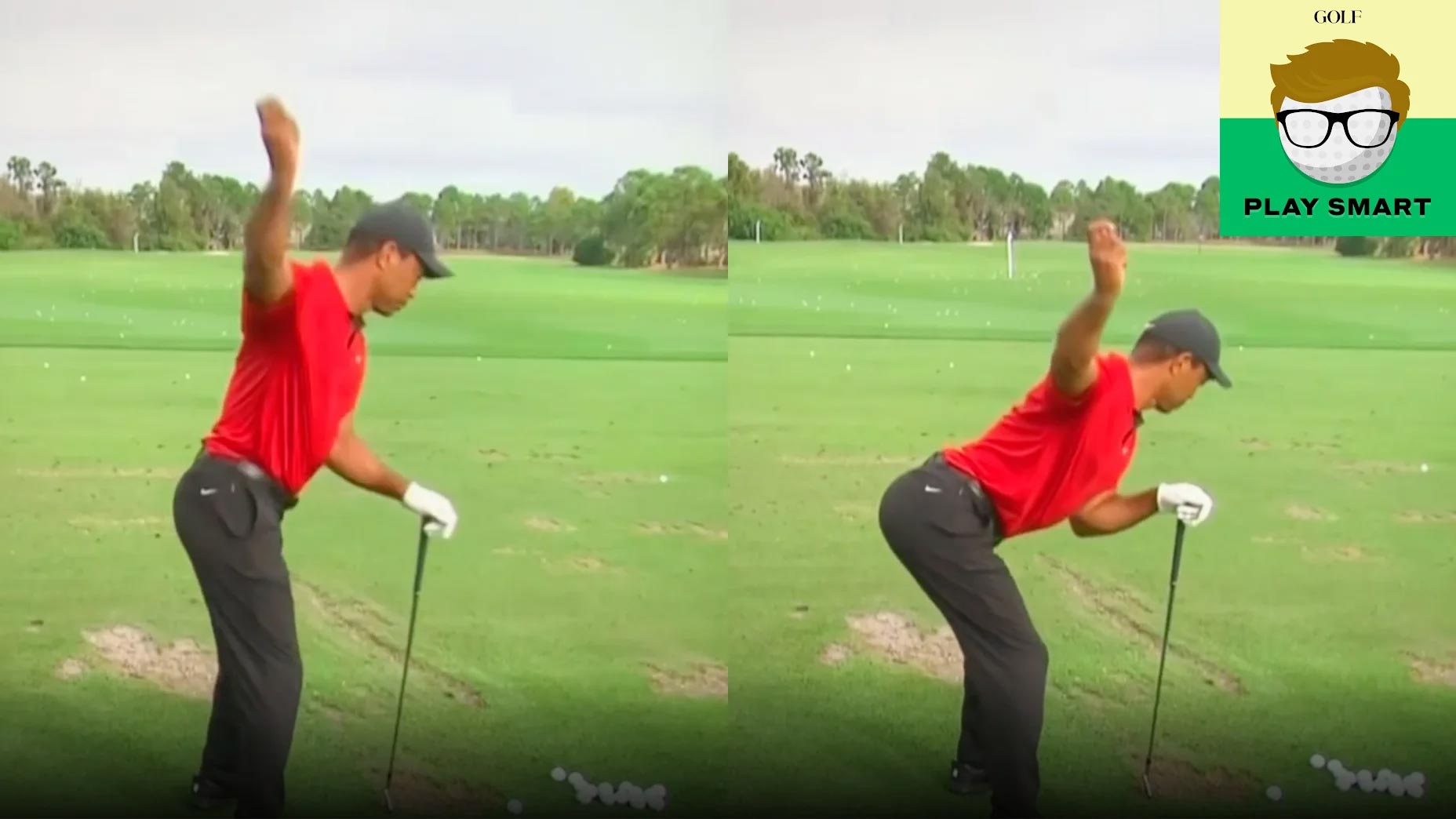Golf Logo
Tiger Woods’ eye-catching warmup move, explained
SHARE
- Share on Facebook
- Share on Twitter
- Share by Email
Revealed! Top 100 Courses You Can Play for 2024-25
Browse ranking here
Backside back, torso down, and turn.
@greg_castleman on Instagram
Welcome to Play Smart, a game-improvement column that drops every Monday, Wednesday and Friday from Game Improvement Editor Luke Kerr-Dineen to help raise your golf IQ and play smarter, better golf.
Back in 2015, long before before a couple of back surgeries and car crash-induced leg injuries almost ended his career, Tiger Woods withdrew from that year’s Farmers Insurance Open for a reason that seemed rather trivial at the time.
“My glutes are shutting off,” he said. “They aren’t activating, and then it goes into my lower back.”
It was hard for the rest of us not to chuckle at the time, but like so many things throughout Tiger’s extraordinary career, his throwaway comment was actually a product of him being ahead of the curve. His description of deactivated glutes creating a flaw in his swing and pain in his back is what most of us know today as early extension.
For those who may have heard the term “early extension” floating around but always wondered what it meant: early extension is, simply, when your hips move towards the golf ball on the downswing. It often happens in golfers who may be weak or inflexible in their core, glutes or hips.
For some golfers, changing the space you have between your body and the golf ball can be hard to repeat. But because every golfer is different, others, like Jack Nicklaus, have used early extension as a key source of power in their swing. The tradeoff is that a big early extension move can be a strain on golfers’ lower backs.
Tiger’s knee is the obvious issue in his golf swing right now, but that doesn’t mean the problems involving his back have magically disappeared. Protecting one can’t come at the expense of the other.
Which brings us to this weekend where Tiger, on the range before he and Charlie’s barnstorming final round, rehearsed a feeling where his backside moved way away from the ball, and his torso moved towards the ground.
What’s Tiger doing? He’s trying to feel the opposite of early extension. He wants to turn his right hip deep behind him on the backswing, and then in transition, feels like he squats, so his pelvis stays away from the ball and the rest of his body stays in posture. From there, he can turn through, and avoid putting any excess pressure on his back.
That’s the move he’s chasing: Hips back, torso down, and turn through. That sequence requires placing some pressure on his trail knee in the process, but that’ll be something he needs to manage in the future.
It’s very early days in his recovery, still, but on Sunday, Tiger found a groove with his swing on Sunday. Perhaps it was because he had Charlie Woods as his inspiration. When it comes to rotating in your posture, you can’t do much better than this…
Don't care who you are or how old, Charlie's impact position is legitimately so pure. pic.twitter.com/N5OzSZmZwT
— LKD (@LukeKerrDineen) December 19, 2021

Golf.com Contributor
Luke Kerr-Dineen is the Game Improvement Editor at GOLF Magazine and GOLF.com. In his role he oversees the brand’s game improvement content spanning instruction, equipment, health and fitness, across all of GOLF’s multimedia platforms.
An alumni of the International Junior Golf Academy and the University of South Carolina–Beaufort golf team, where he helped them to No. 1 in the national NAIA rankings, Luke moved to New York in 2012 to pursue his Masters degree in Journalism from Columbia University. His work has also appeared in USA Today, Golf Digest, Newsweek and The Daily Beast.